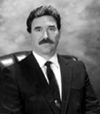 | Ed Clausen M.A
M.A. Audiologist, CCC-A is a licensed Audiologist under the Kansas Department of Health and Environment. He received his CCC-A in 1994 and serves as Company Audiologist for the 18 company offices of Midwest Hearing Aids, Inc. in Kansas. He holds memberships in the American Speech/Language and Hearing Association, the Kansas Speech/Language and Hearing Association, and the Kansas Hearing Aid Association. You may contact Ed at Midwest Hearing Aids corporate office in Wichita at 1 (800) 668-4055 or locally at (316) 264-2411. |
Audiology
2001-09-01 11:07:00
Damaging loud noises
Question: How damaging are loud noises, such as stereos, gunshots or lawnmowers, to your hearing? What are some of the best ways to counteract this?
Answer: We seem to be living in a society that gets louder and louder. Every loud sound that enters your ears can affect your hearing. When a loud sound enters your inner ear, it can damage the delicate hair cells that take the sound energy and turn it into the electrical signal that goes to your brain. While damage to these cells may not be noticeable for a while, the damage caused by loud noises is cumulative, and over a period of years, may develop into a significant hearing impairment.There are two factors to consider when determining if a sound poses a danger to your hearing: the intensity (loudness) of the sound, and the duration of exposure to the sound. For example, it is not considered dangerous to be exposed to 80 dB of sound for 8 hours; but if you increase the sound to 90 dB, an 8-hour exposure does pose a threat to hearing. A single sound, such as a gunshot, at a sufficient intensity (110-120 dB) can damage hearing permanently even after only one exposure. Be aware that any loud sound can damage your hearing permanently if it is intense enough, whether it's classical music or a power tool.There are two forms of hearing impairment due to noise: temporary threshold shift (TTS) and permanent threshold shift (PTS). TTS immediately occurs after exposure to loud sound where the individual may notice decreased hearing, and may also experience tinnitus (hearing a sound in the ear such as ringing or buzzing). These symptoms subside after a period of time, usually a few hours. While the individual may feel like their hearing is back to normal, there has been permanent hair cell damage. Additionally, this phenomenon can be made worse if there are extenuating circumstances, such as the individual taking certain types of medication. TTS is cumulative; if an individual is exposed to loud sounds more than once, then a permanent threshold shift can occur. PTS occurs when an individual's hearing decreases after exposure to loud sound and does not recover fully. Tinnitus can occur with PTS as well. This is because enough hair cells have been damaged to affect hearing sensitivity. Once this occurs, it is irreversible.You can protect yourself from noise induced hearing loss (NIHL). Reduce your exposure to noise by taking some simple steps. Play music at a volume that is comfortable to listen to and is not too loud. Don't try to "mask" one noise with another, such as wearing headphones with music playing while mowing the lawn. Avoid using headphones, especially at loud volumes. Wear earplugs when you are going to be exposed to loud sounds, such as power tools, leaf-blowers, lawnmowers, or guns. There are many options available when selecting ear protection; ask your hearing healthcare professional if you are interested. Finally, have your hearing checked regularly. Untreated hearing loss can lead to other problems such as depression, paranoia, and isolation.


